Marvel Uses Miles Morales Spider-Man And Anya Corazon Spider-Girl To Promote Use Of ‘Latinx’

Despite the fact that only 3% of Hispanics use the term to self-identify themselves and even more consider it to be equivalent to a racial slur, Marvel’s latest issue of their diversity-celebrating Voices series features a story in which the Miles Morales incarnation of Spider-Man and the Anya Corazon version of Spider-Girl attempt to justify the use and existence of ‘Latinx’ to the reader.
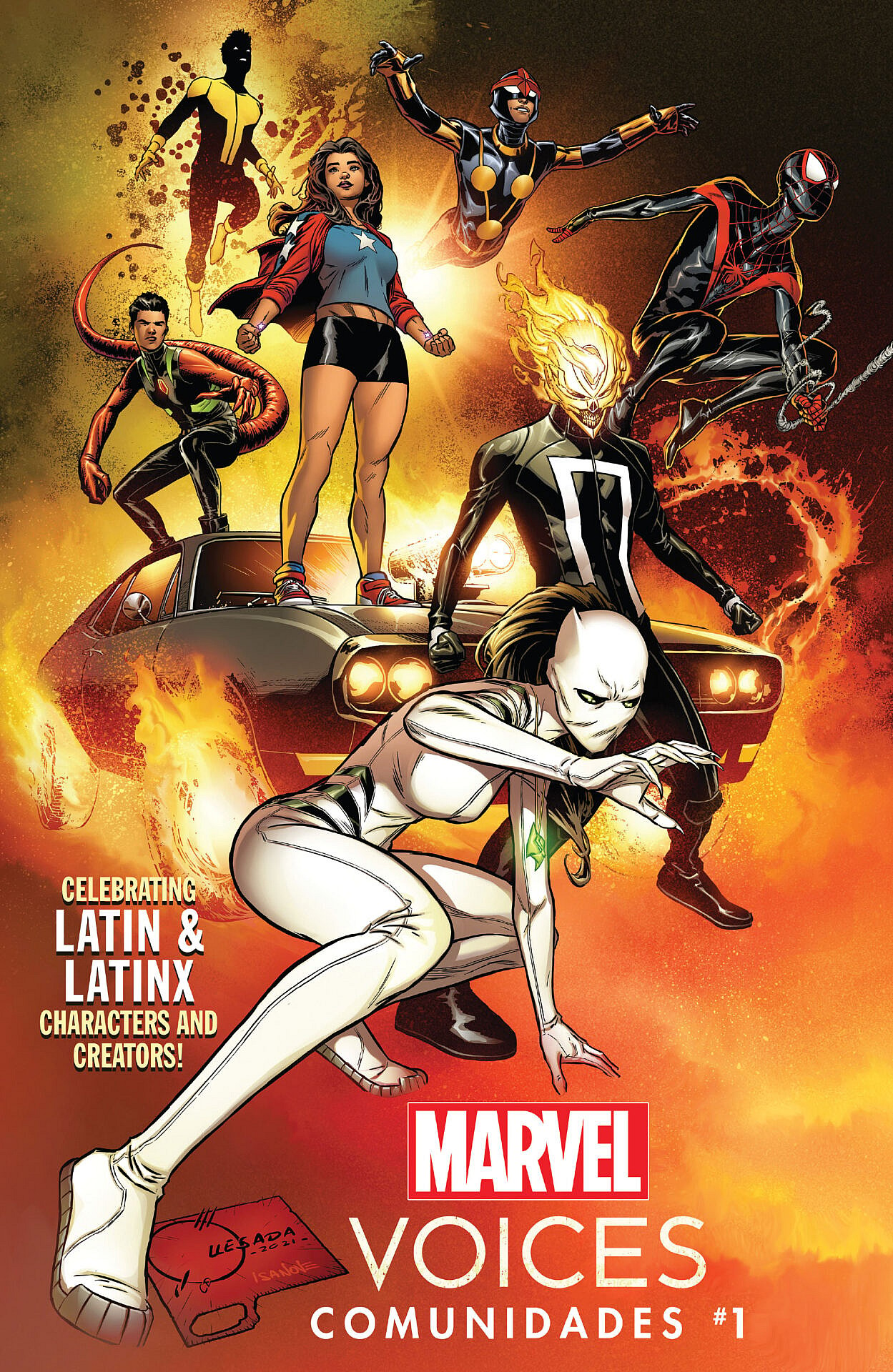
RELATED: Marvel Fans Roast The Company For Celebrating “Hispanic Latinx Heritage Month”
Written by Julio Anta (Image’s Home) with art by Enid Balám (Reptil), inks by Oren Junior (Hawkeye: Kate Bishop), and colors by Federico Blee (Black Panther), the aptly titled ‘Latinx and Proud’ story begins with the Hispanic Spider-heroes Miles and Anya rescuing a woman from a mugger as she was headed down to “an immigrants rights rally at city hall.”
Helping the woman pick up her protest signs, Miles and Anya then agree to attend the rally, swinging off to Miles’ Brooklyn home to create their own set of protest materials.
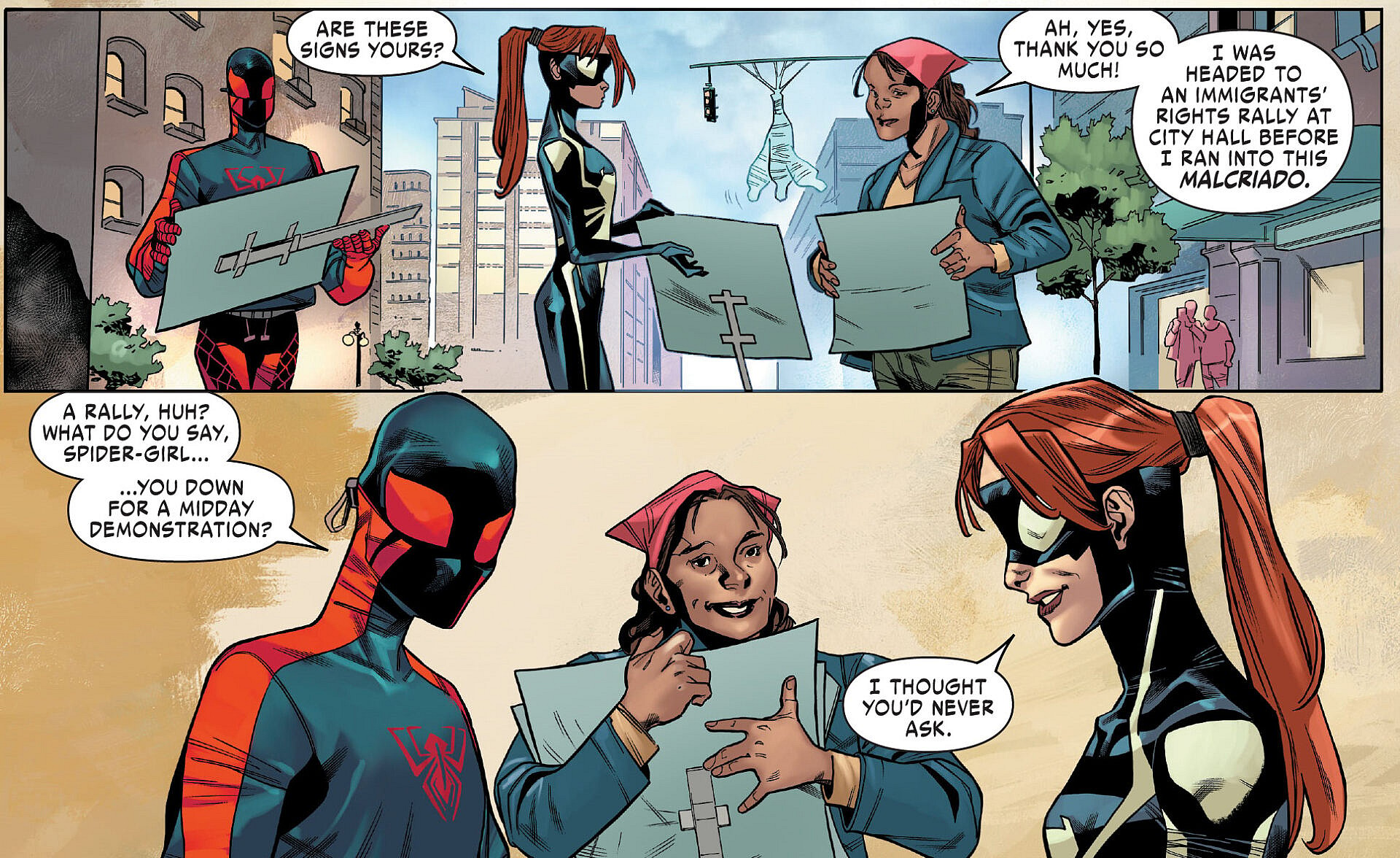
Shortly after their arrival, Miles’ mom, Rio Morales, returns home from the grocery store, only to find herself puzzled by the use of ‘Latinx’ on one of their signs.
This leads her to ask Anya, “What does that mean? Latinx. I’ve heard the term thrown around lately but I’ve never had the opportunity to really ask about it.”

“Oh. Latinx is just a more inclusive way to refer to people – rather than as ‘Latino’ or ‘Latina,’” responds Spider-Girl, prompting Rio to push back, “Inclusive huh? What’s wrong with Latino and Latina? Weren’t those working just fine until now?”
“Well, the thing about ‘Latinx’ is that it’s an all-encompassing term,” Anya explains in return. “It doesn’t assume anyone’s gender the way that Spanish usually does.”
“’Latina’ may be working just fine for people like us who identify as female, but for those who are gender nonconforming, or identify as nonbinary, or gender-fluid, the forced gendering of Latino and Latina can be really tricky to deal with.”
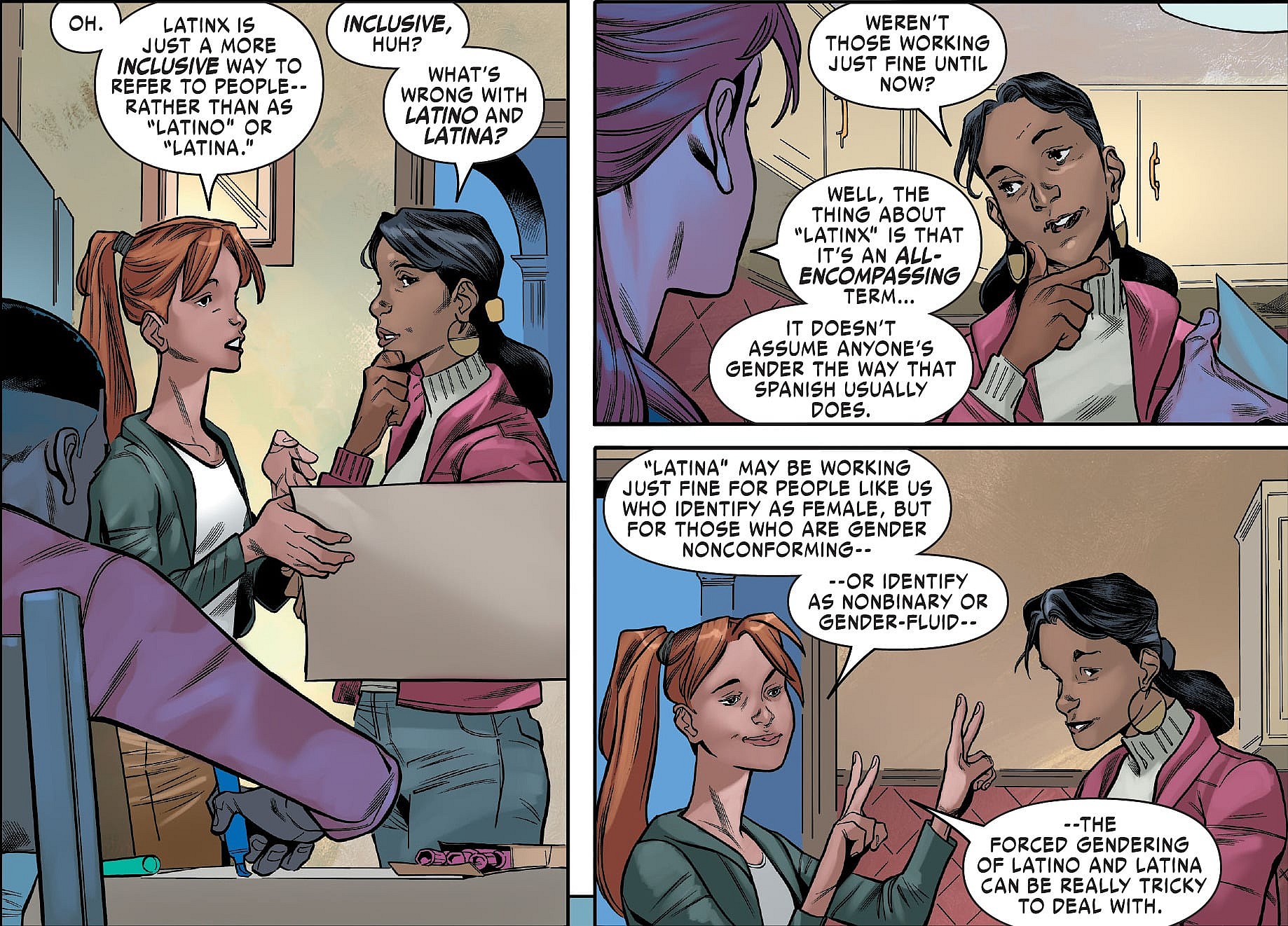
Pressed by his mother as to whether or not it was “a little too late to be changing the rules of a language,” Miles proceeds to chime in,” I don’t think anyone is saying you have to start saying Latinx, Mom. But we all know that language can be messy, right?”
“So maybe language should be adapted when it muddies up something as important as someone’s personal identity,” he continues.
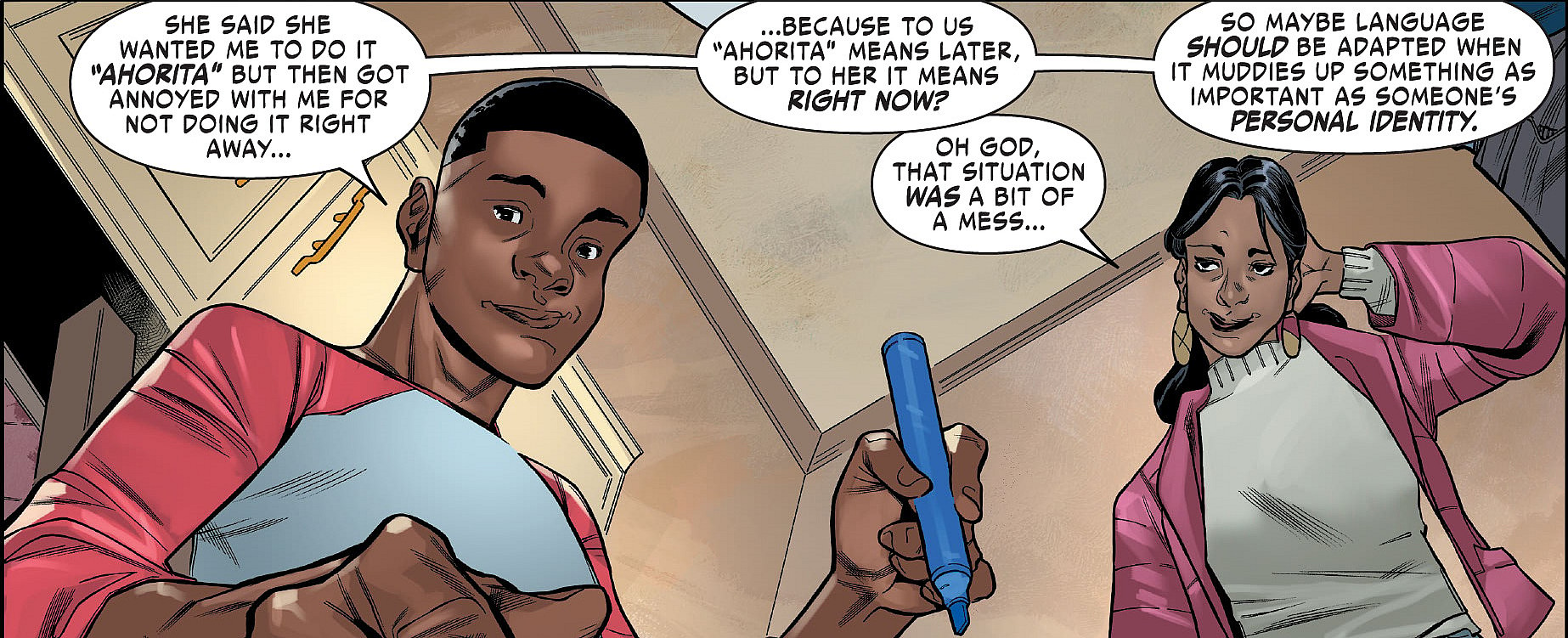
RELATED: The CW Passes On ‘Latinx’ Wonder Girl Series
Following his mother’s subsequent comparison of the Latinx’s use to how some individuals prefer Latino over Hispanic, and vice versa, Miles then concludes, “I think it’s just about figuring out what works best for you and respecting what works best for other people.”
However, the still curious Rio then asks Anya “one more question: Does Latinx even translate to Spanish? ‘Cause I think that’s probably a pretty important part of all of this, right?”
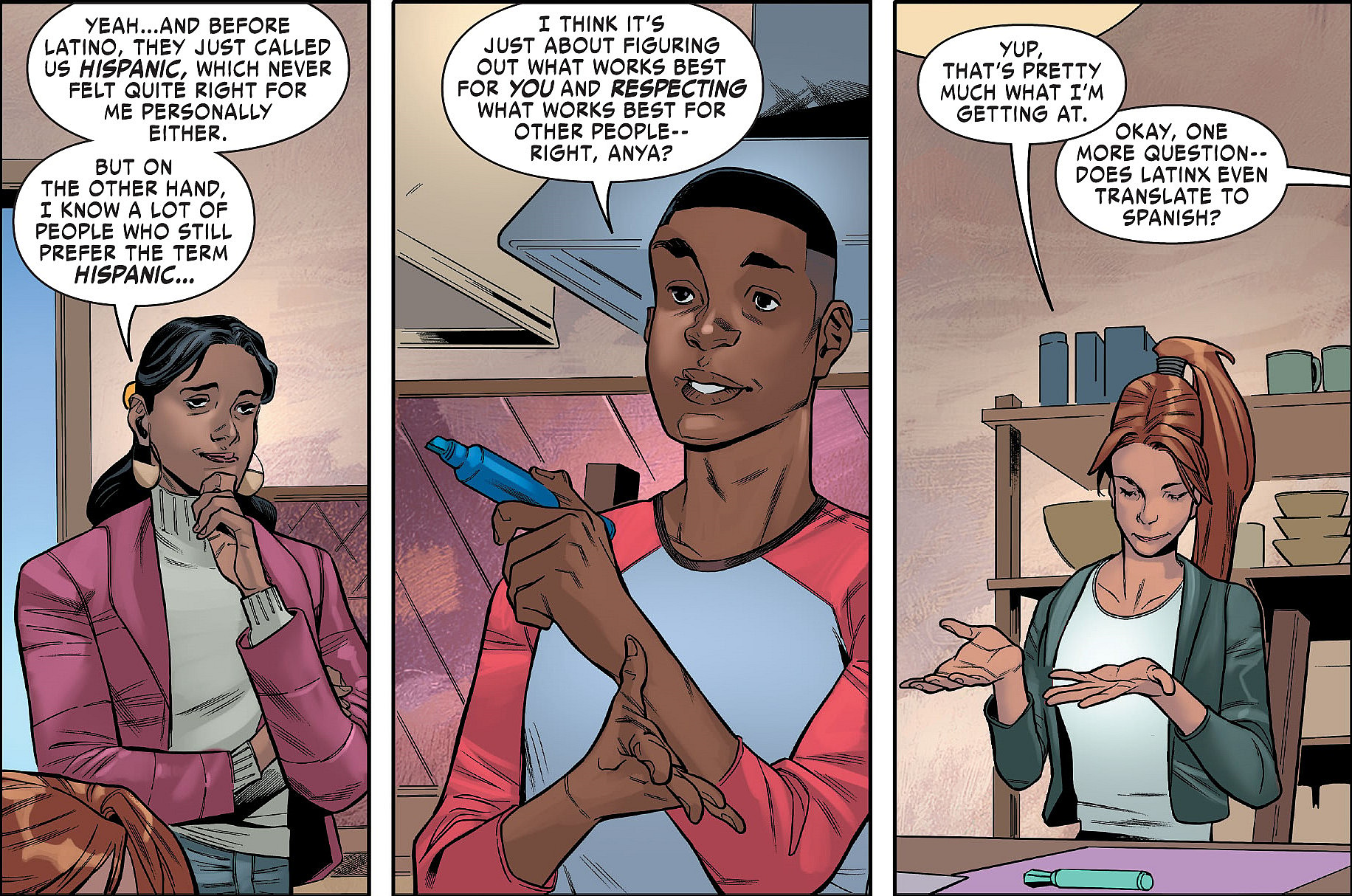
In a telling condemnation of the fact that the term Latinx is, to put it lightly, nonsensical, Anya replies by offering up the argument, “Of course! The term was actually developed by LGBTQ+ people in Latin America, so it definitely translates,” all of which gives the reader no actual explanation as to how the term translates, but instead asks them to just take their argument-supporting claim as accepted fact.
“Latine is another inclusive alternative that’s been gaining steam lately, though Latinx is still the most accepted term at the moment” adds Anya, giving readers a glimpse at the neverending spiral of the ever-changing rules of ‘acceptable language’ that inevitably follow when one accedes to social media-based demands for surface-level inclusivity. “But you ultimately should just use whatever term feels more comfortable for you and those around you. It’s not a huge deal!”

After thanking Anya for her explanation, the three head to the aforementioned immigrant rally, with the story ending on a panel of the protest – led by Anya bearing a sign that reads “Latinx and Proud” – being covered by a news reporter who announces, “Thousands of Latinx families and their allies have come together to make their voices heard. Their demand: Dignity.”
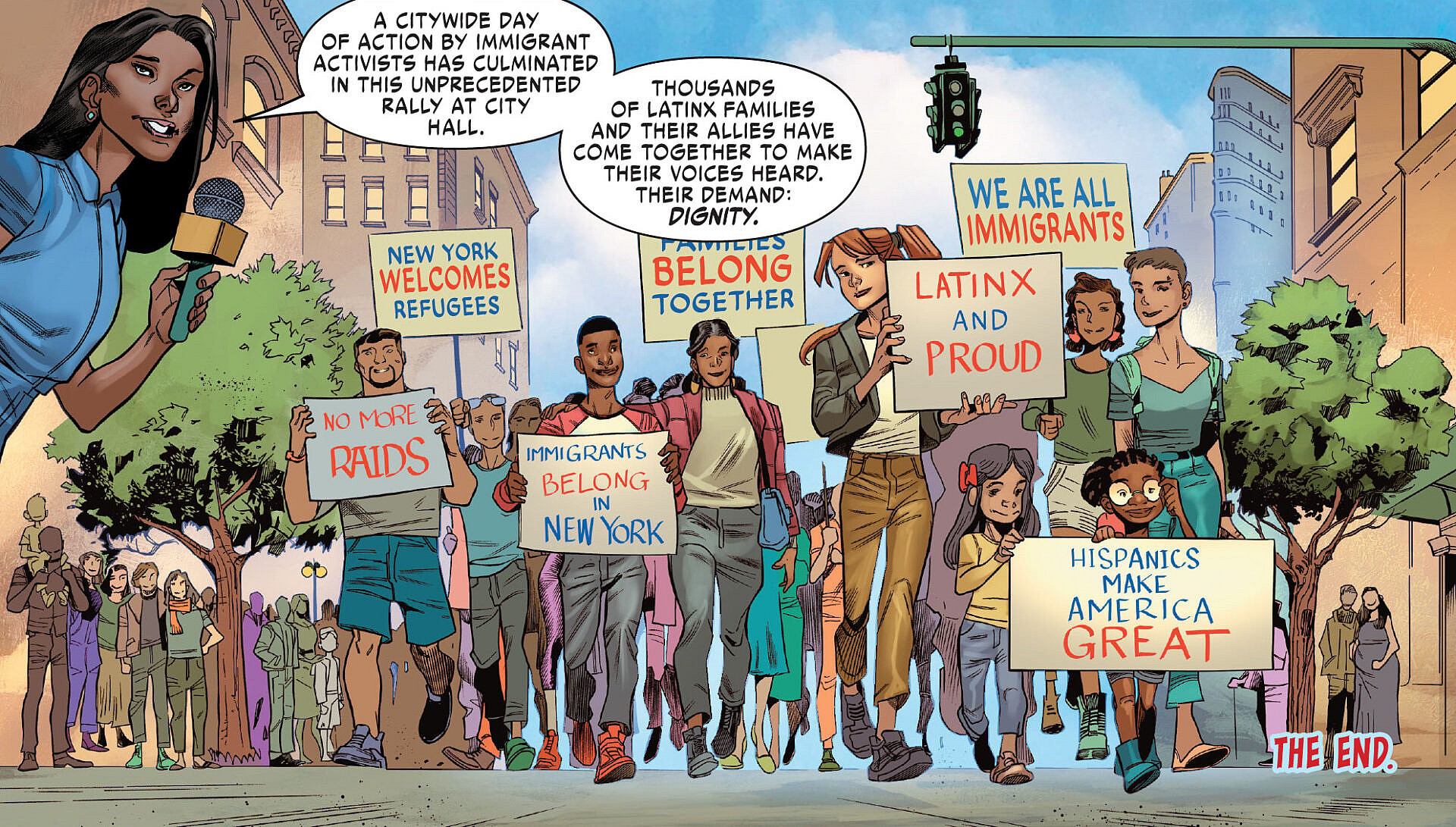
Did Miles and Anya convince you to add ‘Latinx’ to your vocabulary? Let us know your thoughts on social media or in the comments down below!
